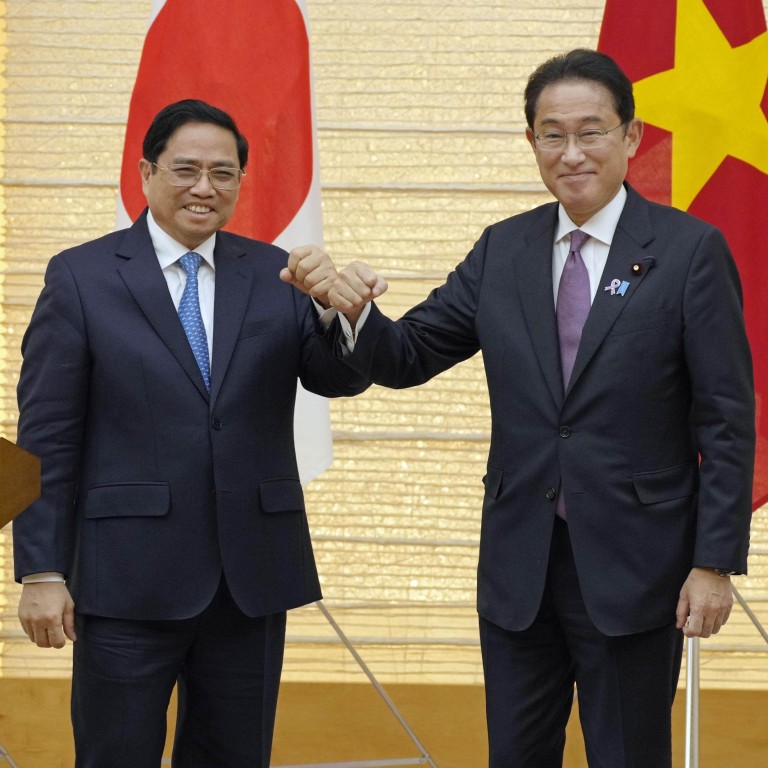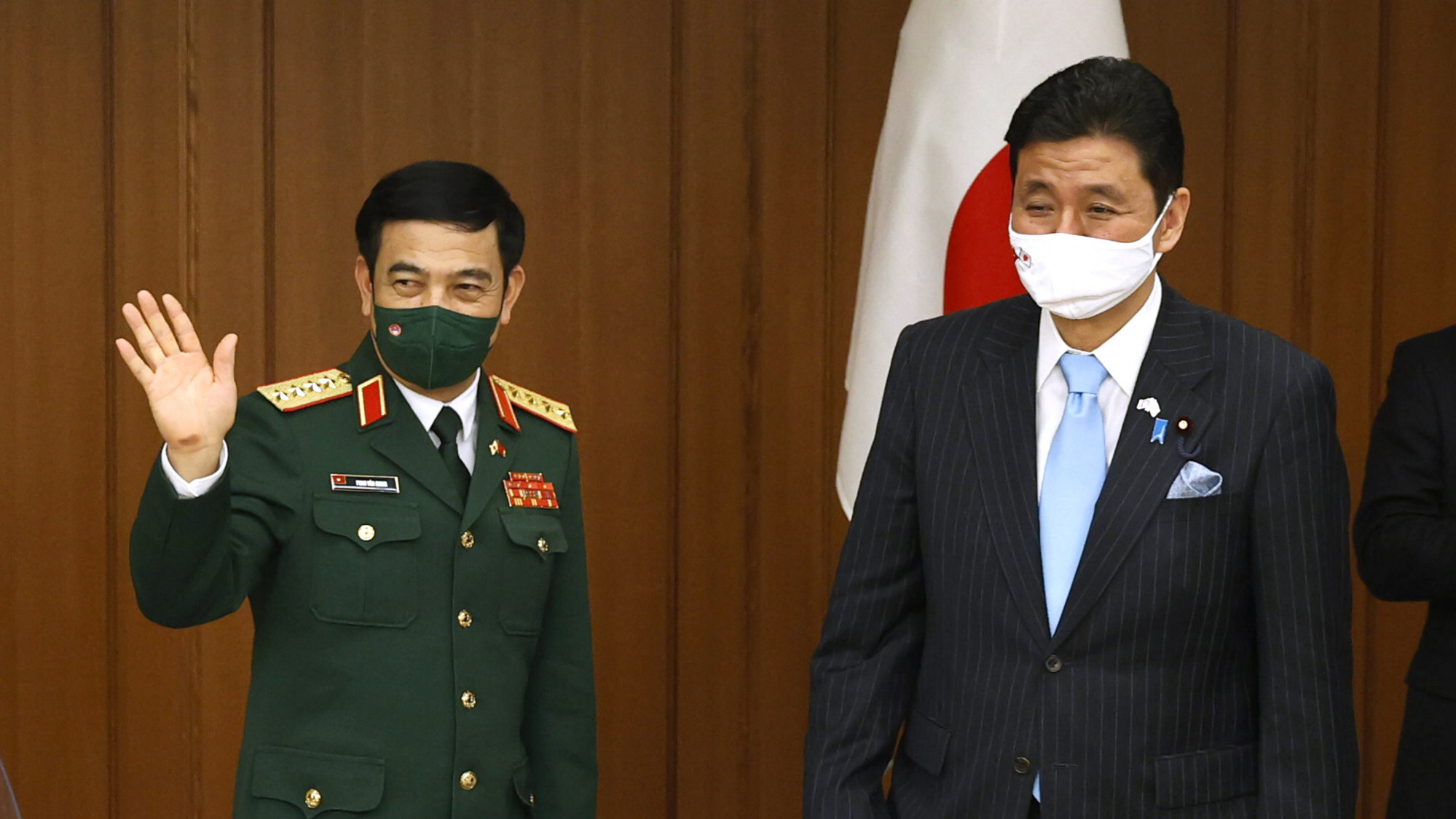
Japan, Vietnam to boost security cooperation amid ‘serious concerns’ over South China Sea
- The countries’ leaders agreed to step up their strategic alliance and strengthen supply chains, while Tokyo will also send Hanoi 1.54 million more Covid-19 vaccine doses
- Successive Japanese governments have made strategically located Vietnam a key component of Tokyo’s foreign policy in the Indo-Pacific
A joint statement following their meeting in Tokyo said the two agreed on the importance of upholding an international order that is based on law, while affirming they will work together towards economic recovery from the coronavirus pandemic.
“Vietnam is an important partner for Japan which will serve as the linchpin in our efforts to realise a free and open Indo-Pacific,” Kishida said as he met the press with Chinh after their talks.
The leaders “expressed serious concerns about the situation in the South China Sea and any unilateral attempts to change the status quo and increase tensions”, the statement said, while calling for any disputes to be resolved in line with international law.
Japan, Vietnam step up defence and economic ties as China’s influence grows
“Our countries consider each other the most important and long-term partners, and I hope we can continue to elevate bilateral relations to new horizons,” Chinh said.

“I see virtually everything that is being discussed between the Japanese and Vietnamese leaders as related to China and building on the relationship in order to surround China,” he said.
Vietnam pins hopes on Japan to face down Beijing in South China Sea oil hunt
Japanese firms see big opportunities for expansion in Vietnam and that is being encouraged by the government
Between 2014 and 2018, Japan provided around US$280 million in development assistance for infrastructure development, human resource management and environmental and governance practices in Vietnam, making Tokyo the nation’s largest aid donor.
Many Japanese firms have factories in Vietnam or use Vietnamese components in their products, and Kishida and Chinh agreed to strengthen supply chains across their countries, including through the use of digital technologies and diversifying manufacturing facilities.
The two also affirmed cooperation in improving conditions for Vietnamese technical interns and students in Japan, according to the joint statement.
Vietnam pins hopes on Japan to face down Beijing in South China Sea oil hunt
“Japanese firms see big opportunities for expansion in Vietnam and that is being encouraged by the government here because economic development will enable the government there to stand up more firmly to China,” Murakami said, adding that Tokyo is deploying a similar tactic in several other countries across Southeast Asia.
Said Zinberg: “Security is being used as an extension of trade and aid and that also fits in with the US strategy on China. I expect Japan’s links with Vietnam to grow, particularly in the military sphere, and this will become an important and lasting relationship.”


